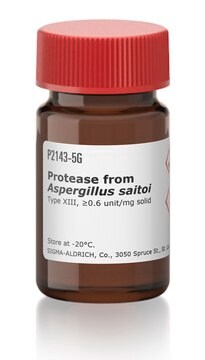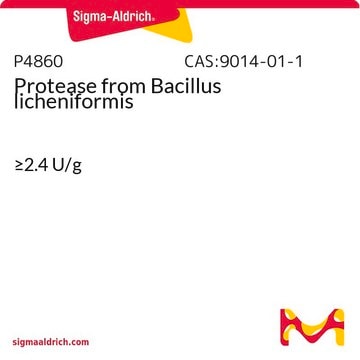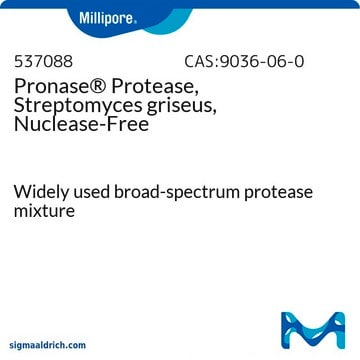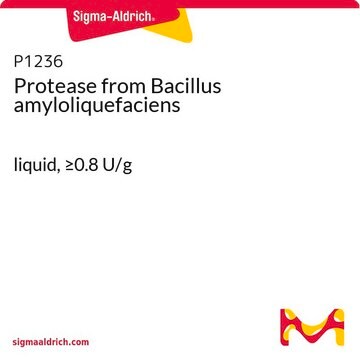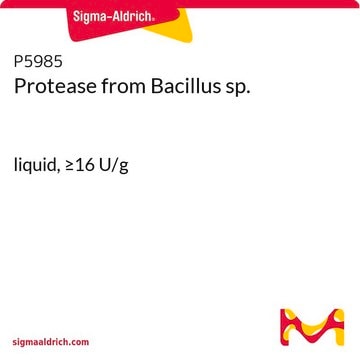P0652
Protease from Streptomyces sp.
Type XXI, ≥15 units/mg solid
Synonyme(s) :
actinase E, pronase E, Actinase E, Pronase E
About This Item
Produits recommandés
Type
Type XXI
Niveau de qualité
Forme
powder
Activité spécifique
≥15 units/mg solid
Poids mol.
~50 kDa
Température de stockage
−20°C
Catégories apparentées
Application
Actions biochimiques/physiologiques
Propriétés physiques
Inhibitors : Diisopropyl fluorophosphate, EDTA
Optimum pH : >=12
Optimum temperature : 60oC
pH Stability : pH 5.0 - 11.5 (25oC,24hr)
Thermal stability : below 50oC (pH 8.3, 15min)
Définition de l'unité
Forme physique
Notes préparatoires
Mention d'avertissement
Danger
Mentions de danger
Conseils de prudence
Classification des risques
Eye Irrit. 2 - Resp. Sens. 1 - Skin Irrit. 2 - STOT SE 3
Organes cibles
Respiratory system
Code de la classe de stockage
11 - Combustible Solids
Classe de danger pour l'eau (WGK)
WGK 2
Point d'éclair (°F)
Not applicable
Point d'éclair (°C)
Not applicable
Équipement de protection individuelle
Eyeshields, Gloves, type N95 (US)
Certificats d'analyse (COA)
Recherchez un Certificats d'analyse (COA) en saisissant le numéro de lot du produit. Les numéros de lot figurent sur l'étiquette du produit après les mots "Lot" ou "Batch".
Déjà en possession de ce produit ?
Retrouvez la documentation relative aux produits que vous avez récemment achetés dans la Bibliothèque de documents.
Les clients ont également consulté
Notre équipe de scientifiques dispose d'une expérience dans tous les secteurs de la recherche, notamment en sciences de la vie, science des matériaux, synthèse chimique, chromatographie, analyse et dans de nombreux autres domaines..
Contacter notre Service technique


